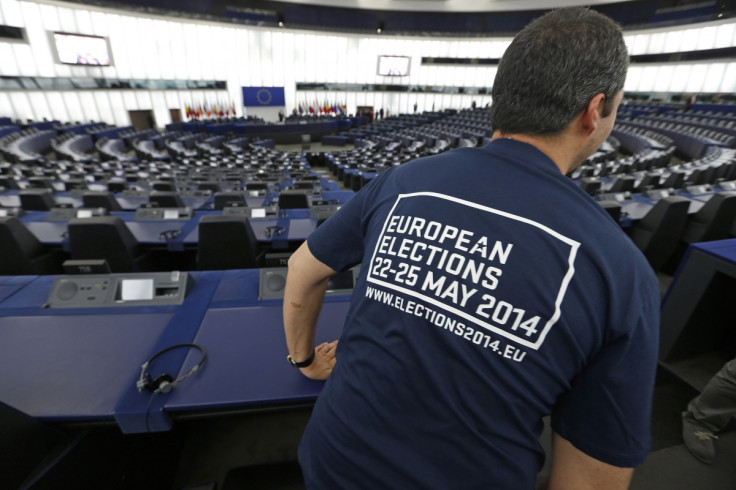EU Elections: What MEPs Get in Salary and Expenses

At a time when unemployment festers like a disease across Europe's stricken labour market, there's one class of people still doing pretty well – the politicians.
And none more so than our friends in the Belgian capital of Brussels, the European Union's (EU) official swinery where national tax receipts are snaffled up by political piglets and excreted as piles of red tape.
So when the citizens of the 28 member states of the EU head to the polling stations to elect members of the European Parliament (MEPs), a waffle-shop of pseudo-legislating where grey-suited canisters of hot air are let off, they should bear in mind that it's not just power being bestowed by their votes – it's a whacking great pay deal too.
For starters, the annual pre-tax salary for an MEP is currently €96,246.36 (£78,000, $131,500). The basic salary is fixed to 38.5% of that of a judge at the European Court of Justice.
That compares to a £27,000 (€33,370) average gross annual salary in the UK, assuming you have a full-time job. So an MEP earns three times more a year than the average worker in Britain.
Mais non, mes amis. The perks don't stop at the salary. The entitlements continuent.
The European Parliament runs a non-contributory pension scheme, which means it pays into a pension pot but MEPs don't have to add anything if they don't want to. As it stands, the EU – so taxpayers – pop 3.5% of the annual salary into a pension for MEPs.
Assuming an MEP even lives this long, after years of boshing back as much complimentary vino, cheese and cured meat as they can get hold of, they can retire at 63 on that European Parliament pension.
Bon voyage
As you might expect, with a union spanning 28 different countries there's a lot of travel that comes with being an MEP. But they needn't worry, because travel expenses are covered.
That's not necessarily unreasonable in itself, but it isn't just train and plane fares that are paid for by the EU. They can claim back for first class and business class tickets, so MEPs don't have to mix with the Great Unwashed whose interests they purport to represent.
But these tickets are only for official trips mostly to Brussels or Strasbourg, the two locations at which the parliament is herded, and elsewhere within the EU.
There is an extra travel allowance of up to €4,243 for trips outside of the EU on whatever official business may arise in, say, a Bahamas beach resort. It's not clear if swim shorts and inflatable crocodile lilos are covered by the allowance, but probably not.
As if all of this wasn't enough, the poor saucissons who are burdened with their electoral duties as MEPs are given a €304 a day "subsistence" allowance for when they're on official business.
All they have to do is, like a school child, sign a register at wherever they're supposed to be to prove they bothered to turn up. That covers things like hotels, restaurants and, says the EU website with a comforting vagueness for taxpayers, "all other expenses involved".
Keeping it up
Then there are the coffers for coughers. Two-thirds of a medical bill can be claimed back by MEPs from the European Parliament.
A leaked EU document in 2011, called the Practical Guide to the Reimbursement of Medical Expenses, detailed the sorts of things MEPs could claim back on – including Viagra. It's not just a stiff upper lip British MEPs are able to keep.
For their office costs, MEPs can claim a general allowance of €4,299 a month to fund things like phone bills and computers.
And to pay for their sty of wonks, bag-carriers and spin-doctors, MEPs can claim up to €21,209 a month for staffing costs.
Until recently when the EU finally cracked down, some MEPs were hiring close family and friends as staff. On decent wages, of course, because the welfare of Europe's workers is of paramount importance to the EU.
For some, though, the 2014 election will be their last dance at the Brussels party, an end to their lucrative times at the European Parliament.
But they needn't worry too much. All MEPs are entitled to a "transitional allowance" of at least £39,000 to help them settle back into the real world, where people travel in standard class and drink Echo Falls. That golden goodbye is higher depending on how long you served as an MEP.
So at least they've got a cushion to land on when they fall into that inevitable role as a bureaucrat somewhere else in the labyrinthine EU system. The electorate may reject you, but the EU won't because it always looks after its own. C'est la vie for an MEP.
© Copyright IBTimes 2024. All rights reserved.






